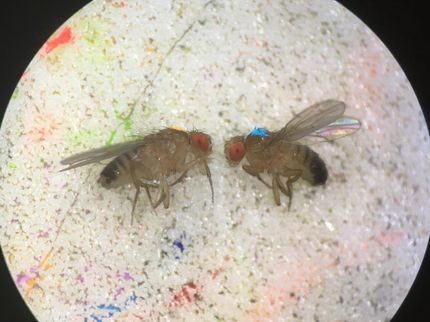Wageningen UR presents gene bank of wheat-ravaging fungus to Global Rust Reference Centre
Advertisement
Scientists of the Plant Sciences Group of Wageningen UR have presented their unique gene bank of the ravaging stripe rust fungus Puccinia striiformis f.sp.tritici to the Global Rust Reference Centre of Aarhus University in Denmark. In addition to the fungal collection containing thousands of isolates, the scientists also handed over the complete database with detailed information about the isolates. The collection is stored in liquid nitrogen, which preserves fugal spores for decades. As a result of this transfer to the Global Rust Reference Centre, the Wageningen collection will become more accessible for research into stripe rust, one of the main pathogens in global wheat production.
“We see it as our responsibility to ensure that this valuable stripe rust collection, which includes a range of historical physiological races of the fungus, is fully available for research and training of scientists and plant breeders,” says Gert Kema of Plant Research International (part of the Plant Sciences Group). “The recently established Global Rust Reference Centre is an excellent location for our collection, as it aims to facilitate the research and training of scientists.”
Mogens Støvring Hovmøller, manager of the Global Rust Reference Centre: "The material from Wageningen is a very important addition to our own collection. It contains many well characterised isolates from the past. These will be of great value to our users and will help to fight the increasing problems with yellow rust epidemics in many parts of the world"
The Wageningen collection of stripe rust includes unique ‘old’ races of the fungus. These strains of the fungus date back to the time when resistant wheat varieties rarely if ever impeded the fungus from growing and spreading in Europe and many developing countries. These races make the collection eminently suitable for performing DNA research into the genetic differences between races and their development and origin. Kema: “Recent biological and technological developments in DNA research will enable to map the genomes of dozens of races. This knowledge could greatly stimulate the development of wheat varieties with new resistances that this fungus will find hard to break.”


























































